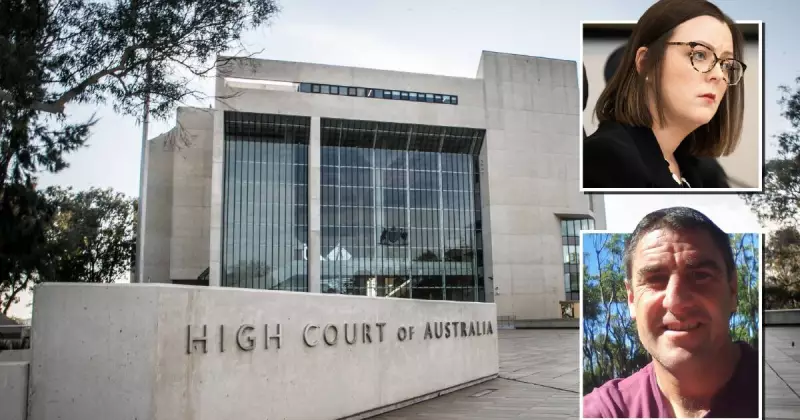
The ACT's Director of Public Prosecutions has launched a vigorous challenge against a decision that overturned a murder conviction, labelling the appeal court's reasoning as 'mere speculation' in an application to the High Court of Australia.
Legal battle over jury verdict
ACT Director of Public Prosecutions Victoria Engel SC has argued that the ACT Court of Appeal showed a 'significant departure from the deference and respect' owed to the jury's original verdict when it overturned Michael O'Connell's murder conviction.
The case involves Michael O'Connell, aged in his mid-40s, who was found guilty by an ACT Supreme Court jury of murdering his partner, Danielle Jordan. The victim died after falling from a moving Mitsubishi Triton vehicle driven by O'Connell.
Following his conviction, O'Connell received a 15-year prison sentence, but this was set aside when the ACT Court of Appeal overturned the murder verdict in a split decision.
Appeal court's controversial ruling
After quashing the murder conviction, the three appeal judges faced the complex task of determining how to handle the alternative charge of manslaughter that jurors had previously rejected during the original trial.
In September 2025, the appeal court entered a guilty plea to manslaughter and sent the matter back for sentencing. O'Connell remains in custody awaiting his new sentence for the lesser charge.
The appeal judges were again divided on how to proceed with the manslaughter question. Chief Justice Lucy McCallum advocated for the matter to go to a retrial, highlighting the ongoing legal complexities in the case.
Dueling High Court applications
Both the prosecution and defence have now filed separate applications seeking to have the matter heard in Australia's highest court.
The prosecution, led by Ms Engel, is fighting to have the murder conviction reinstated. She contends that the appeal court majority's conclusion that O'Connell didn't consider the probability of Jordan's death when driving with her on the bonnet was not based on evidence.
Ms Engel stated in her application: 'This approach was not only 'mere speculation', but a hypothesis that was never put to the jury either directly or indirectly and for tactical reasons.'
Meanwhile, O'Connell's Legal Aid lawyers are seeking either an acquittal or a retrial for manslaughter if the High Court accepts their application. They argue the appeal judges erred in assuming the jury would have found O'Connell guilty of manslaughter when they determined the murder reasoning was unreasonable.
The defence application states: 'In order to enter a finding of guilt on an alternative offence, it is not sufficient that the Court of Appeal thinks that the jury would or might have found the applicant guilty of the other offence, if the error had not occurred.'
What happens next
The High Court will determine at a later date whether to grant special leave to appeal in this complex legal battle that pits judicial authority against jury verdicts.
The outcome could have significant implications for how appeal courts handle alternative charges when overturning criminal convictions across Australia's legal system.





